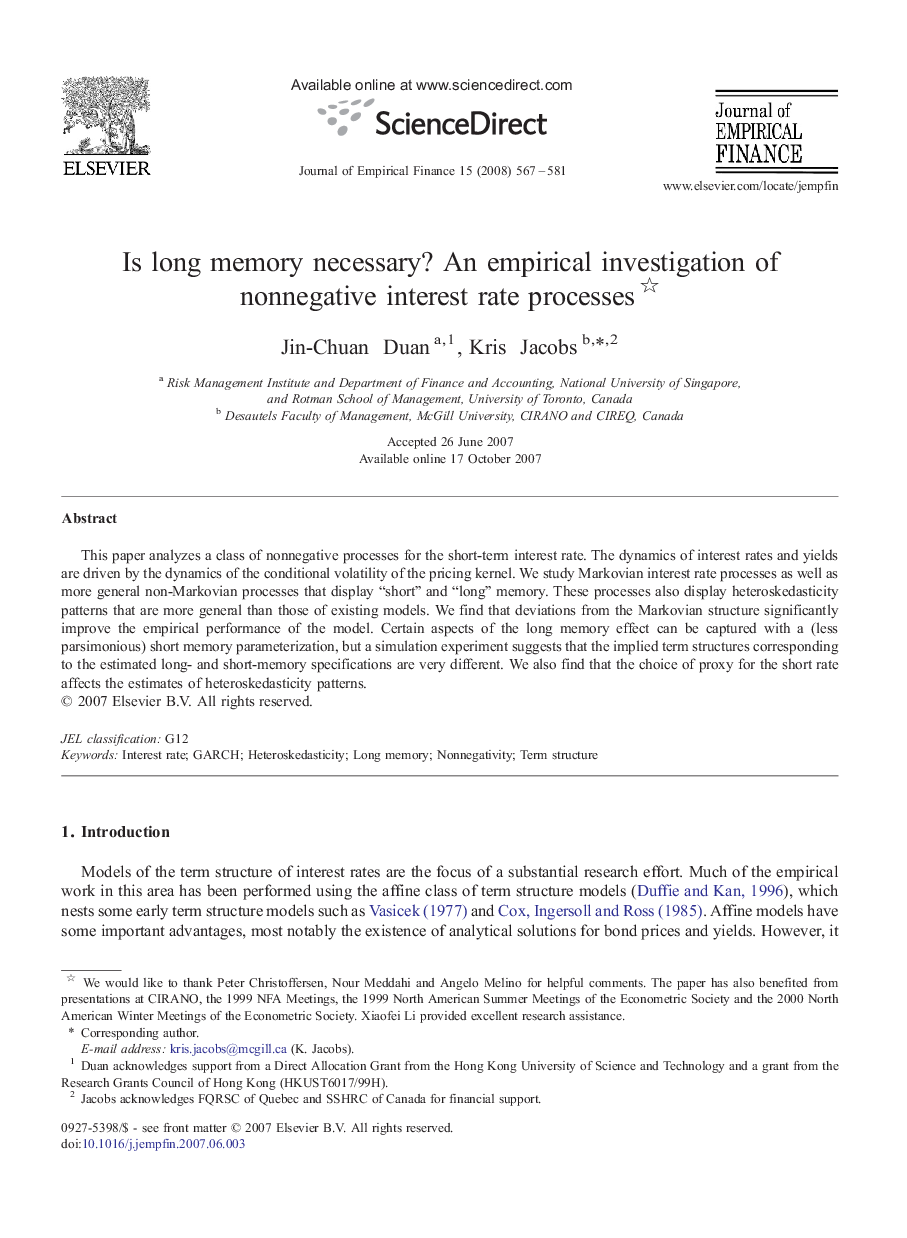| Article ID | Journal | Published Year | Pages | File Type |
|---|---|---|---|---|
| 958334 | Journal of Empirical Finance | 2008 | 15 Pages |
Abstract
This paper analyzes a class of nonnegative processes for the short-term interest rate. The dynamics of interest rates and yields are driven by the dynamics of the conditional volatility of the pricing kernel. We study Markovian interest rate processes as well as more general non-Markovian processes that display “short” and “long” memory. These processes also display heteroskedasticity patterns that are more general than those of existing models. We find that deviations from the Markovian structure significantly improve the empirical performance of the model. Certain aspects of the long memory effect can be captured with a (less parsimonious) short memory parameterization, but a simulation experiment suggests that the implied term structures corresponding to the estimated long- and short-memory specifications are very different. We also find that the choice of proxy for the short rate affects the estimates of heteroskedasticity patterns.
Related Topics
Social Sciences and Humanities
Economics, Econometrics and Finance
Economics and Econometrics
Authors
Jin-Chuan Duan, Kris Jacobs,
